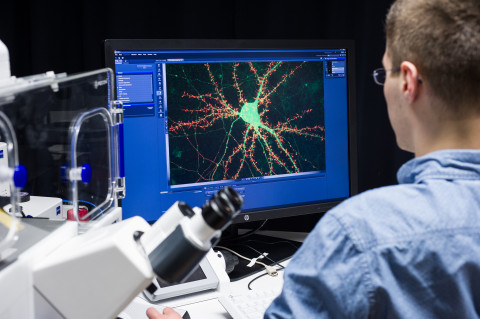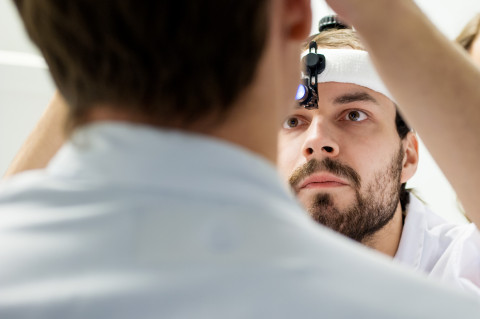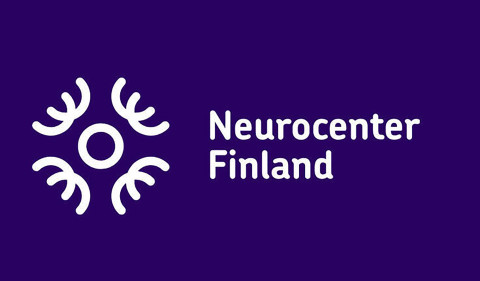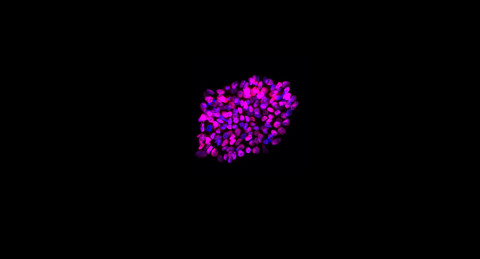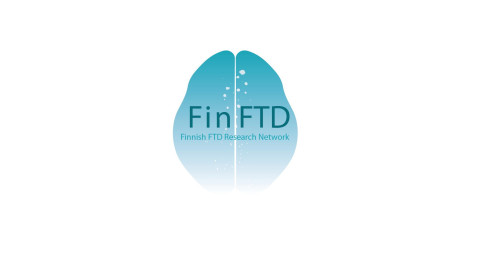Research groups at UEF have a long-standing history of conducting top-level research focused on neurodegenerative diseases and epilepsy. To ensure and strengthen the world-class neuroscience research conducted at UEF, Neuroscience (NEURO) Research Community integrates biological neurosciences with data sciences, neuro-innovations, and neuro-ethics. Neuroscience Research Community connects researchers and research groups from three faculties: Faculty of Heath Sciences, Faculty of Social Sciences and Business Studies; and Faculty of Science, Forestry and Technology.

The goal in the UEF Neuroscience Research Community is to identify novel biomarkers and therapeutic targets for neurodegenerative diseases and epilepsy by merging computational and biological neurosciences. Focus is also set on the neuro-innovations and neuro-ethics.
Mikko Hiltunen
Professor

News and events
News
In the NEURO Research Community high-quality research is done in three research areas
The prediction and early diagnosis research area aims to understand the disease-specific and common molecular mechanisms underlying neurodegenerative diseases and epilepsy, and to identify novel biomarkers and therapeutic targets for the prevention and cure by merging computational and biological neurosciences. Machine learning-based prediction tools will be integrated with high-level legal and social science expertise on patient rights, and neuro-ethics. Co-creative collaboration processes and innovation outcomes will be studied holistically from management and organization, as well as socio-legal perspectives.
The prevention and treatment research area aims to promote collaborative innovation across networks and ecosystems where novel therapies are developed, tested, and launched for treating neurodegenerative diseases and epilepsy. Together with the key intersectoral partners, such as companies, patient organizations and hospitals, the research will focus on new drug candidates, multi-domain lifestyle-based interventions and personalised medicine-based treatments. For high-level outcomes, machine learning approaches will be used to identify asymptomatic individuals at high risk and patients for specific treatments and predict therapy response. Intersectoral co-innovation processes will be studied, and research designs will be guided by legal expertise on law and neuro-ethics, as well as stakeholder and patient-oriented research approaches.
The technologies, methods and models research area aims to understand and improve knowledge transfer across research teams and from university to industry. Research in this area focuses on emerging technologies, such as artificial intelligence (AI) -based data analyses, multiomics, experimental MRI techniques and multiscale imaging. These approaches will be applied to different patient and population-based cohorts, biological samples, genetically modified animal models as well as the humanized disease models. Algorithms and competence on inverse problems will be utilised, together with legal expertise on privacy, data protection and data-sharing policies. Entrepreneurial innovation processes will be studied to achieve success in research commercialisation.
Our mission for the UEF strategic period 2020-2030 is Healthy Brain Throughout Life, which includes earlier diagnosis, prevention, better treatments for neurodegenerative diseases and epilepsy. The mission is aligned with the Brain Mission launched by the European Brain Council and supported by the whole European neuroscience community and big pharma. Our mission is to educate innovation leaders with world-class competence to create ethical and sustainable solutions based on multidisciplinary and intersectoral brain health research.
Based on the mission, Neuroscience research has five goals for the earlier diagnosis, prevention, better treatments for neurodegenerative diseases and epilepsy:
- To strengthen the data infrastructures to match with the needs of big preclinical and clinical neurodata analysis from 2021
- To facilitate the research, innovation and training between neurosciences, data sciences, business- and law school by establishing a Neuro-data-business graduate school during 2022
- To establish a Center for Humanized Models, which promotes the data generation and analysis for translatable neurosciences in the discovery of novel biomarkers and treatment targets during 2023
- To discover and validate at least one biomarker for clinical use by the end of 2026
- To introduce the first preventive treatment by the end of 2030
Based on the mission set for the earlier diagnosis, prevention, and better treatments for neurodegenerative diseases and epilepsy, there is a need to:
- Facilitate the dialogue between patients, families, clinicians, researchers, health care providers, educators, and pharma
- Engage stakeholders in various sectors of society to interdisciplinary actions, including medical and information technology; small and medium-sized enterprises, multinational enterprises, and industry
- Engage designer sector for consumer goods and medical devices
Tasks:
- Evaluation and approval of the general work plan of the NEURO-RC
- Organization of the annual mid-term analysis of the milestones set for the work packages
- Meetings six times a year and from the request of the chair of the coordination group or steering group
Members (2020-2021):
Mikko Hiltunen, Chairman, Professor of Tissue and Cell Biology, Director of NEURO RC
Asla Pitkänen, Professor of Neurobiology, Vice-Director of NEURO RC
Olli Gröhn, Professor of Biomedical NMR
Tarja Malm, Professor of Molecular Neurobiology
Heikki Tanila, Professor of Translational Neuroscience
Jussi Tohka, Professor of Biomedical image and signal analysis
Katja Kanninen, Associate professor of Neurobiology
Ville Leinonen, Professor of Neurosurgery
Päivi Eriksson, Professor of Management
Anna Mäki-Petäjä-Leinonen, Adjunct Professor, Senior Lecturer of Elder Law
Neuroscience research related groups and projects
- Molecular Genetics of Alzheimer's Disease
- Epilepsy Research
- Biomedical MRI
- Molecular Neurodegeneration
- Neurobiology of Disease
- Neuroinflammation Research Group
- Martikainen LAB
- Multiscale Imaging Group
- Neurobiology of Memory
- Biomedical Image Analysis
- CAIDE - Cardiovascular Risk Factors, Aging and Dementia
- Clinical Epilepsy Research
- NPH and Early AD Group
- Algorithmic Data Analysis
- Neuro-Impact and Innovation Research Team
- Neuroethics and Law Research Team
- UEF – Nordic-UK Brain Network

























